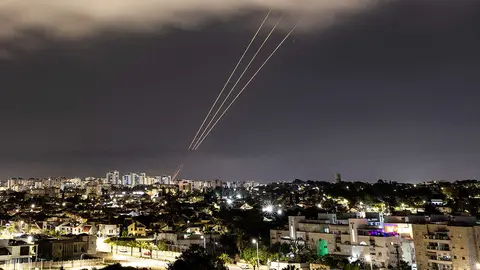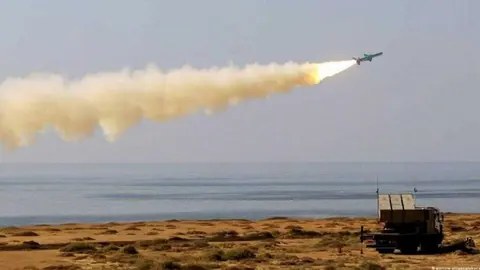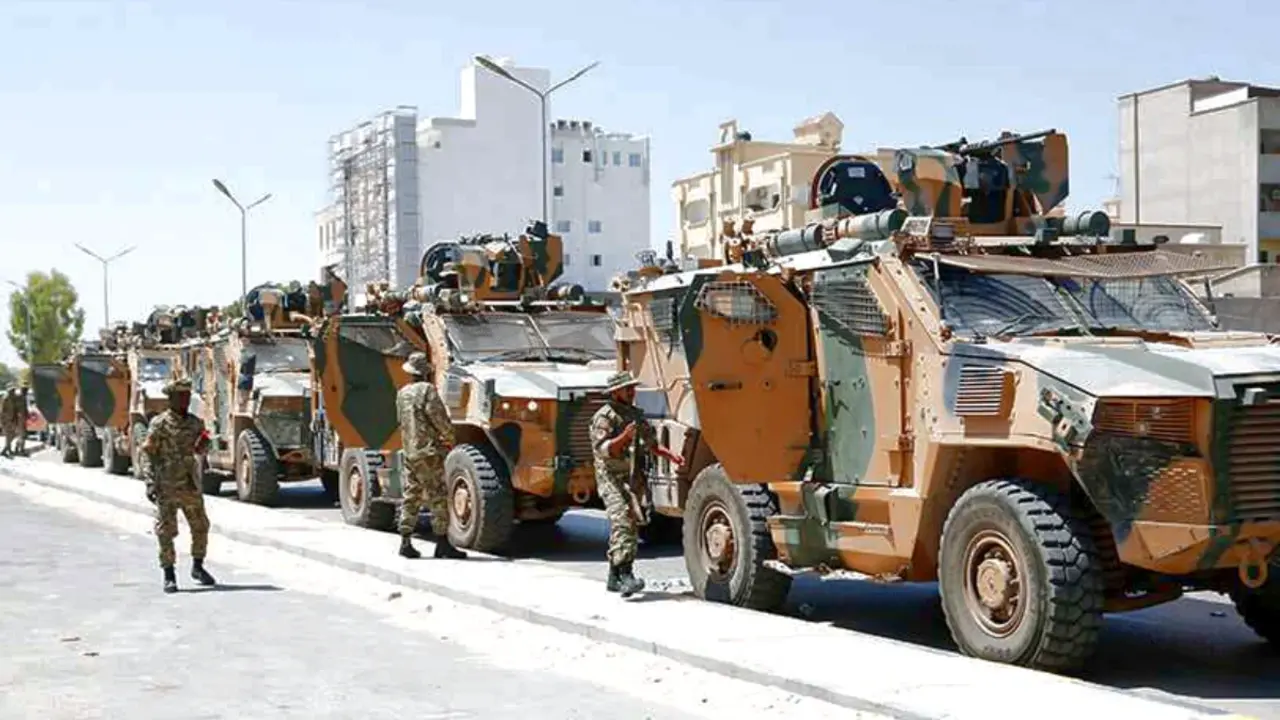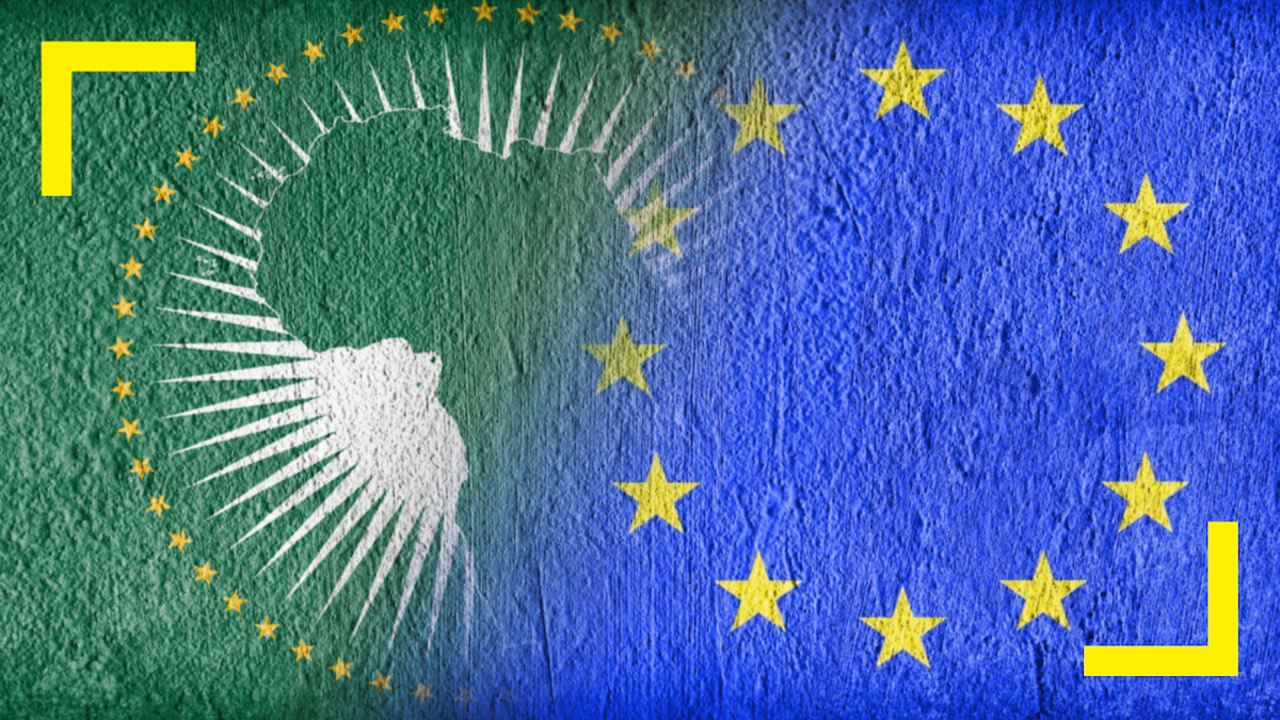Night of maximum tension in Israel

Everyone in Israel and the Middle East expected it. The Islamic Republic of Iran had been threatening for days to "punish" the Jewish state after the attack in Damascus that killed several members of the Revolutionary Guards. At the same time, the US warned its regional ally of an "imminent" attack. "It will happen sooner rather than later," President Joe Biden said at a recent press conference as the US beefed up its military presence in the region.
There was a tense calm in Israel. Everyone knew it would happen, but they did not know when or how. Despite the uncertainty and nervousness, life went on. "We're used to it, they've been threatening for years," commented some Israelis. However, everyone knew that this time it would be different. For the first time, the Islamic Republic of Iran was going to attack Israel directly.
REPORT: Iranian drones heard flying over Iraq towards Israel pic.twitter.com/VTOyNfKxiO
— Eylon Levy (@EylonALevy) April 13, 2024
The attack came as a surprise to no one but still created a state of anxiety in the Hebrew country. Before midnight, Tehran announced the start of its retaliation. The operation they had threatened had begun, but it would take hours for it to be felt on Israeli soil.
This was Israel 15 minutes ago as a massive attack was launched by Iran. This is where the alarms went off. Unprecedented night. pic.twitter.com/UqBXDrvaha
— Louis Fishman لوي فيشمان לואי פישמן (@Istanbultelaviv) April 13, 2024
First they launched several batches of drones that flew over the Middle East. But the worst was yet to come. For the ayatollahs' regime, the 300 or so drones were not enough, so it also launched more than 30 cruise missiles and more than 120 ballistic missiles, according to the Israel Defence Forces.
Iran launched over 300 missiles and drones against Israel yesterday, including 100 ballistic missiles, the Israeli army has said.
— Middle East Monitor (@MiddleEastMnt) April 14, 2024
This comes in response to Tel Aviv's air strike on Tehran's consulate in Syria on 1 April 2024. Attacks came from various Iranian locations and… pic.twitter.com/XFQzI5roNb
As the devices penetrated Israeli airspace - many of which had been intercepted earlier - anti-aircraft alarms were sounded in the east of the country. Jerusalem, the Dead Sea area, as well as territories in the West Bank, were the most affected areas. Alarms were also sounded in Beersheba and the Negev desert, where the main damage has occurred.
First video I have seen of an Iranian missile achieving an impact in Israel - and it hit an open area in the Negev desert. pic.twitter.com/2uRXPU76SU
— Jokerman Intel (@JokermanIntel) April 13, 2024
Once again, the iron dome prevented a major disaster, intercepting "99% of the missiles and drones". Despite this, a ten-year-old girl from a southern Bedouin community is in a "critical condition" after being injured by shrapnel. In terms of material damage, the Israeli authorities have reported "minor" incidents at a military base also in the south of the country.
IDF releases footage showing an F-35 landing at Nevatim Airbase following last night's Iranian attack. Some ballistic missiles managed to hit the base, causing slight damage to infrastructure, but the IDF says it is running as usual. pic.twitter.com/ujPcDJNxAi
— Emanuel (Mannie) Fabian (@manniefabian) April 14, 2024
In addition to protecting civilians and military infrastructure, the Israeli Iron Dome has also intercepted attacks on holy sites in Jerusalem, including the Al-Aqsa Mosque, the third holiest site in Islam.
Watch Israel defending the Temple Mount and Al-Aqsa Mosque from Iranian missile and drones! For the murderous Ayatollah regime, murdering Israelis is more important than safeguarding Islamic holy sites. The UN must clearly and unambiguously condemn the Iranian attack on Israel… pic.twitter.com/ajeg7Fy2Ds
— Ambassador Gilad Erdan גלעד ארדן (@giladerdan1) April 14, 2024
This attack, which comes in the midst of the war in Gaza and at a time of heightened tension in the Middle East, will have significant consequences for the region, which awaits a possible response from Israel.
The Iranian threat has always been there.
— Israel Defense Forces (@IDF) April 14, 2024
Now, they have come out of the shadows to expose its true face—a radical and irrational regime that wants to end the entire free world. pic.twitter.com/7Gi1aGuMVs
Iran has already delivered. By launching its massive attack on Israel it is strengthening its position, both regionally and domestically. However, this operation could also lead to a further escalation of violence, even putting the survival of the current Iranian regime on the ropes. A regime that, through violence and repression, has been oppressing its own people for years.
This is what the shitbags launched at ISRAEL.
— MichaelRapaport (@MichaelRapaport) April 14, 2024
Unbelievable that nobody was killed.#IRONDOME
Am Israel Chai pic.twitter.com/oTKdgtz0tS
Israel also stresses that this attack, although the first direct attack from Iranian territory, is not the first that Tehran has launched against the Jewish state. Its proxies in the region - Hamas, Hezbollah, the Houthis and pro-Iranian militias in Syria and Iraq - have been launching recurrent attacks against Israel since the beginning of the Gaza war.
Prime Minister Benjamin Netanyahu is currently convening the War Cabinet, at the Kirya in Tel Aviv. pic.twitter.com/f9V6xhuKoe
— Prime Minister of Israel (@IsraeliPM) April 13, 2024
Through its regional groups, Iran was attacking its main enemy without endangering its own territory. However, last night 's operation completely changes the rules of the game, raising fears of a regional war.










